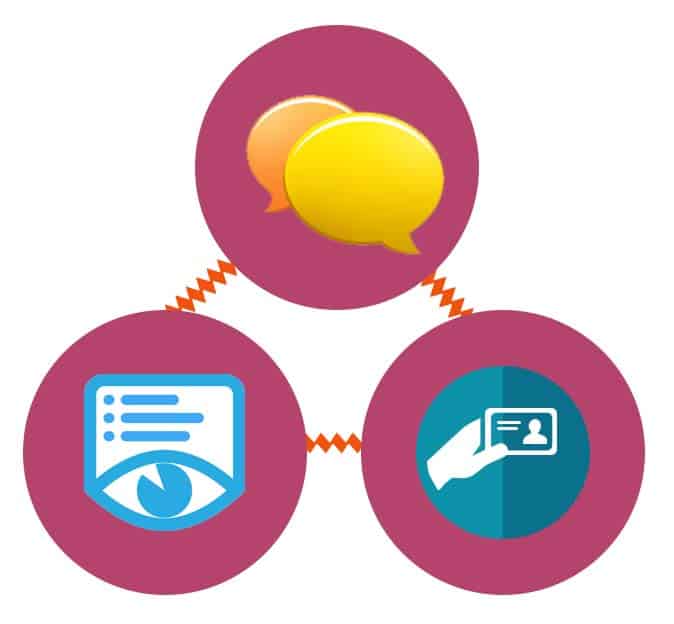
When it comes to taking care of diabetes, all of us need a little help sometimes. I’m sure everyone in the diabetes community can relate to stories of people with diabetes getting frustrated with their health insurance coverage, dealing with expensive trips to the pharmacy, or finding that all kinds of stress (annoyingly) get in the way of a healthy life. We all rely on our diabetes teams and others in our support network in various ways to get us through these challenging situations. MaryBeth Bauer, RN, a Care Manager with the CapitalCare Medical Group in Albany, New York, recently talked to me about her special role on a diabetes team. MaryBeth has spent the past three years as a Care Manager, helping patients get back on track with their diabetes management. She shared with me some key ways in which patients can be their own best resource.
MaryBeth is one of six registered nurses who are designated Care Managers. They act as the “eyes and ears on the ground” to find out the (sometimes elusive) true stories about patients who have type 1 and type 2 diabetes. She is the person health care providers contact when a patient is struggling with comorbid conditions, behavior health challenges, and psychosocial issues. Patients who are referred to MaryBeth and her team are offered the free Care Management service to help them get back on track.
A free service? My ears perked up when MaryBeth mentioned that. It can be reassuring in today’s healthcare climate to find out that a healthcare provider would offer such a service to address major problems and make sure their patients get the support they need - without an additional cost.
MaryBeth describes herself as an advocate who communicates on behalf of patients with everyone else in their health network: primary care physicians, certified diabetes educators, health insurance companies, drug reps, and more. Her role is important when it comes to issues that primary care providers may not have an opportunity to learn about during a short visit, such as the rising cost of critical diabetes medicines. As an insulin and supply survey conducted by T1International recently reported, 1 vial of Novolog can cost between $14 and $300 for patients in the U.S. who are paying out-of-pocket.
“[What] we’re finding is some people are skipping. ‘Oh, I’ll only take my Lantus every other night,’ ‘Oh, you know, my blood sugar, I’m feeling pretty good, I’ll skip this dose of Novolog,’ and it’s terrible,” she says.
I was curious to find out how this immense financial burden affects the cases that come across a Care Manager’s desk: what are patients supposed to do when they get to the pharmacy and realize they can’t pay to fill their prescriptions? MaryBeth hopes patients do that following:
- Talk to your provider. If you are having trouble paying for a medication, make sure the provider who wrote the prescription is informed about what’s going on as soon as possible. If you can, bring up any financial issues that affect your treatment during your appointment. Remember, your health care team wants you to succeed in managing your diabetes!
- Contact your insurance company and don’t be afraid to ask questions: are there any alternatives to this expensive medication? Perhaps another medication will be covered differently.
- Review your health insurance plan and stay up-to-date about any changes in coverage. Ask a health care professional (such as a Care Manager) to look at your options and offer advice to ensure that you are paying for the best possible plan.
Referring to my conundrum as a 20-something freelancer whose career trajectory doesn’t follow a “traditional” path, MaryBeth said she sees healthcare and health insurance moving in a new direction. “I think for your generation, especially, we’re going into a world of healthcare that’s very different, even from when I was your age…you didn’t think about it. ‘Oh, we have health insurance, [through our employer] we’re going to have it. Even after we retire, we’re still going to have it.’ That doesn’t happen anymore.”
Thankfully, MaryBeth offered another key piece of advice to those of us who don’t have access to a Care Management service so we can navigate our own tricky diabetes situations. You’ve probably come across the saying, Be an expert on your own diabetes. At the risk of disappointing anyone who wanted to coast along after knowing everything about their own diabetes, I can confidently report that as it turns out, the same do your homework mantra applies to the rest of your life.
Whether you’re selecting insurance plans from the Marketplace or deciding whether to purchase supplemental plans for Medicaid, it’s important for patients to do their due diligence. Don’t be fooled by niceties and other intangible feelings while shopping around, MaryBeth says. A health insurer “is not necessarily going to say, ‘Let me review your medications. Let me make sure we’re the best for you.’ [Be] a conscientious consumer.”
TheDiabetesCouncil Article | Reviewed by Dr. Christine Traxler MD on June 01, 2020





